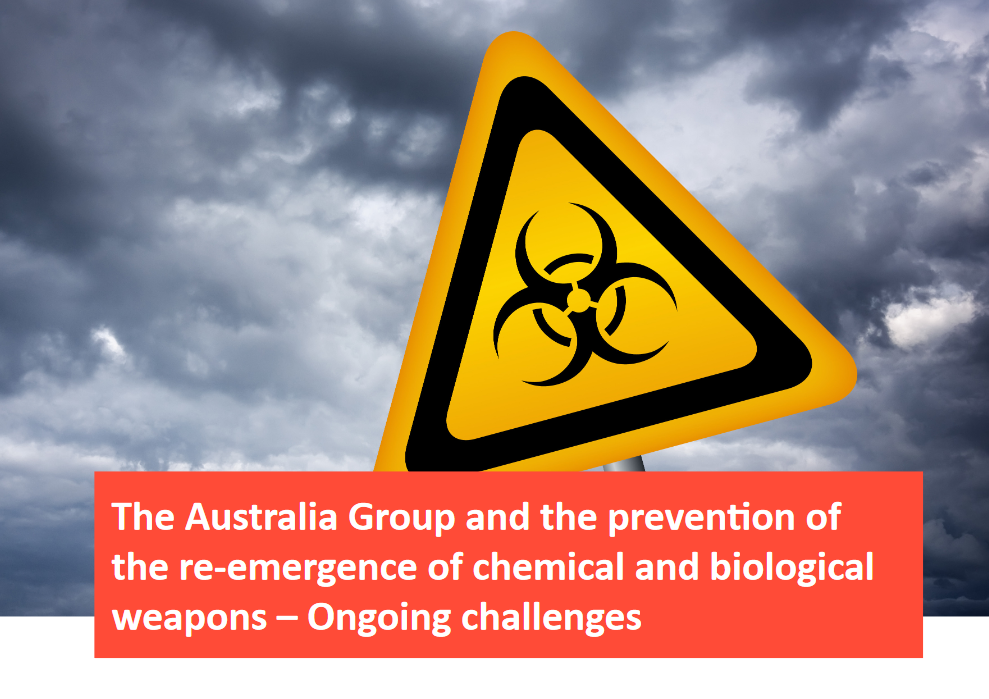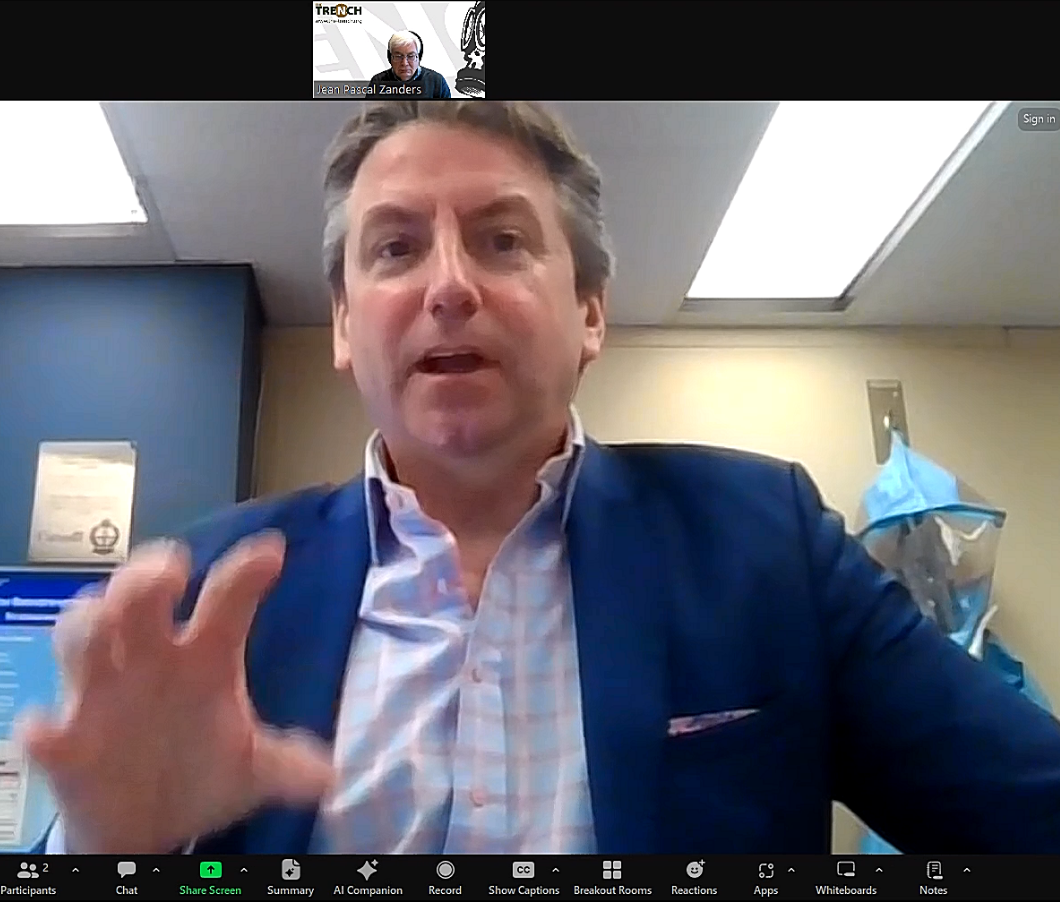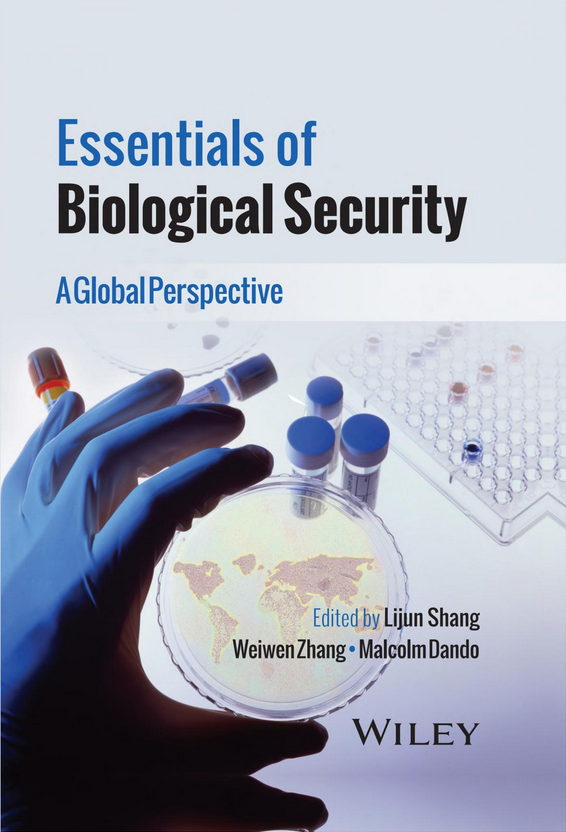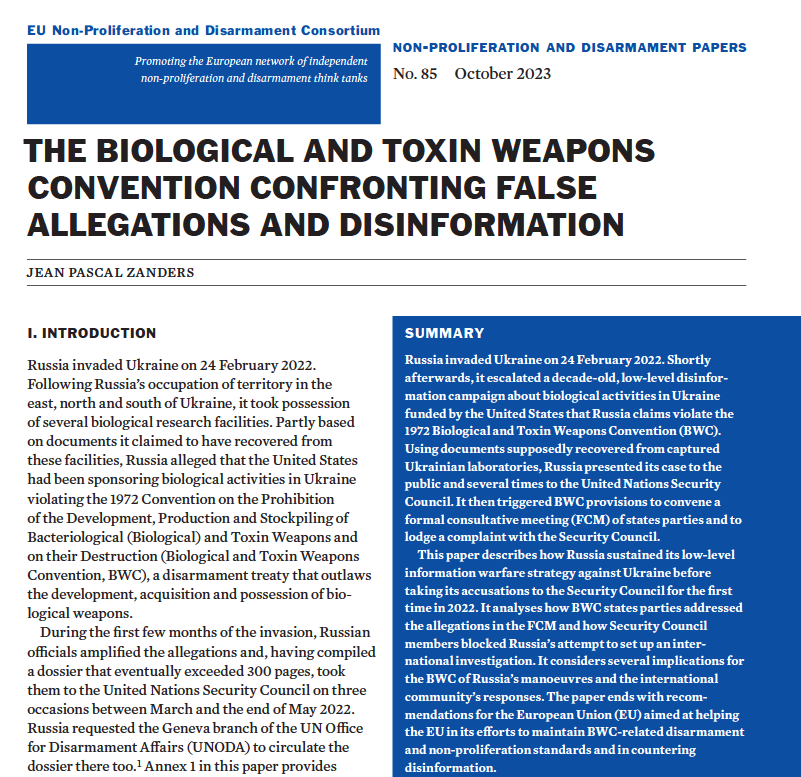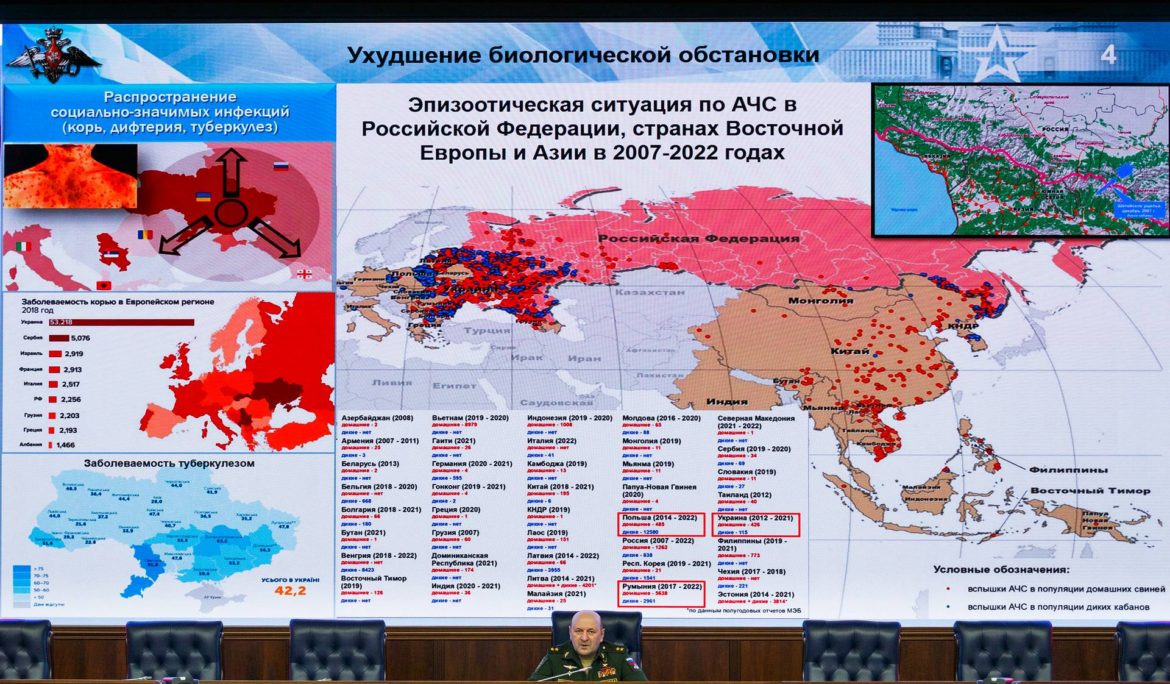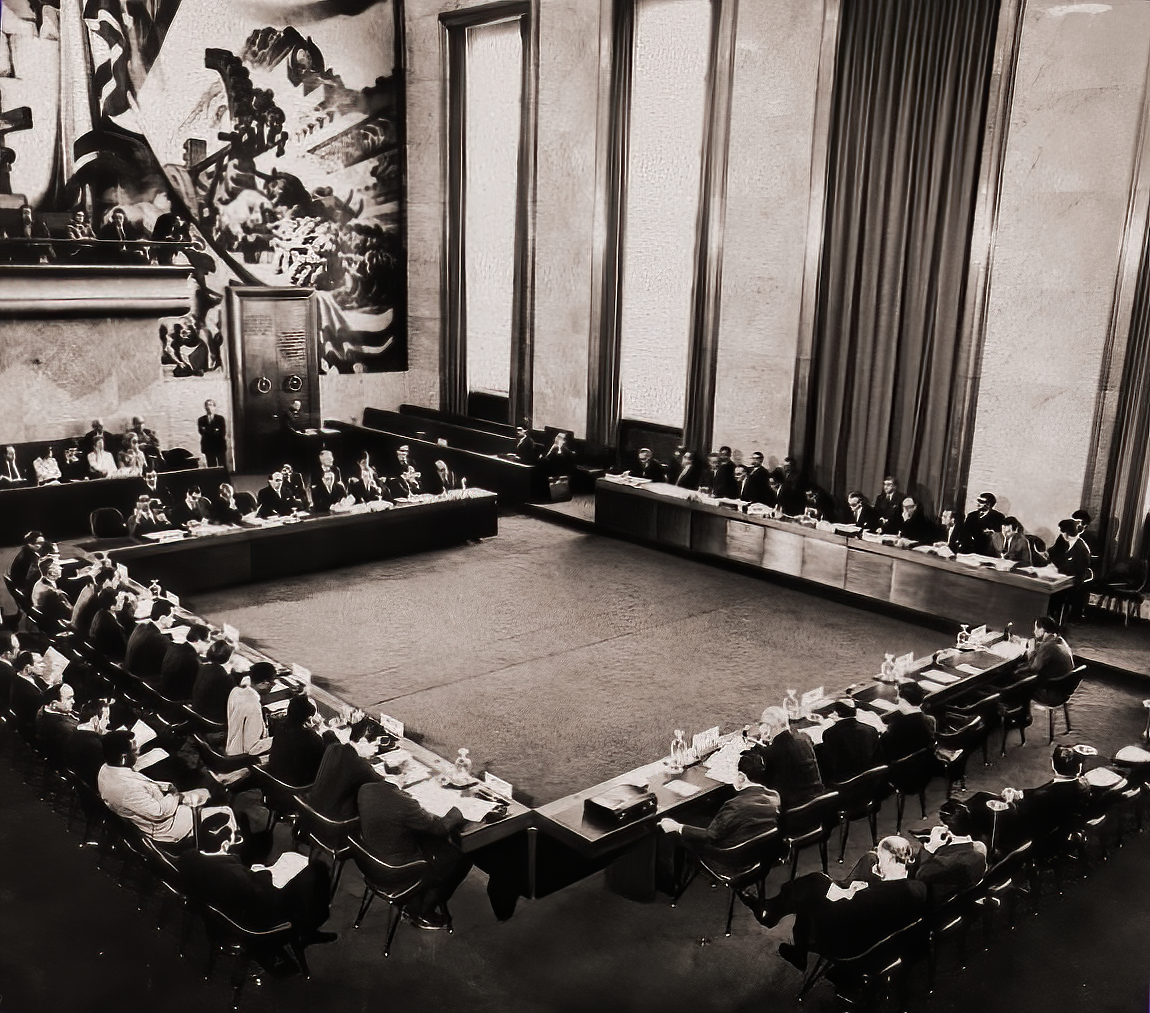The future of confidence building in biological arms control
[Presentation at the civil society event commemorating the 40th anniversary of the entry into force of the Biological and Toxin Weapons Convention, 30 March 2015.] Distinguished representatives, colleagues, let me first stress that I am very honoured to be invited to contribute to this event. May I thank the organisers and sponsors very much, In the next 15 minutes I would like to draw a picture of possible developments of confidence building in the BWC. To that end I will briefly introduce the term confidence and its sources, and will then mainly concentrate on transparency as one of these sources. …
Disarmament education: Road-testing a master’s course on CBRN dual-use technology transfer controls
From 17 until 28 June I ran an Executive Course on Export Control at the M. Narikbayev KAZGUU University in Nur-Sultan (formerly Astana), Kazakhstan. Its goal was twofold. First, it tested in a real university setting parts of a master’s course on chemical, biological, radiological and nuclear (CBRN) dual-use technology transfer controls I have been developing since February 2018. Its second purpose was to attract interest in organising the full master’s course from other Central Asian academic institutes. Set in the broader context of peace and disarmament education, the Executive Course posed considerable challenges from the perspective of educational methodology …
Crowd control with chemical agents: Fundamental questions raised
Book review Michael Crowley, Chemical Control: Regulation of Incapacitating Chemical Agent Weapons, Riot Control Agents and their Means of Delivery (Palgrave Macmillan: Basingstoke, 2015), 378p. Anybody who has attended one of Michael Crowley’s annual presentations at the Organisation for the Prohibition of Chemical Weapons (OPCW) on the challenges posed by riot control and incapacitating agents for the future of the Chemical Weapons Convention (CWC) knows his passion for the subject matter. And his overwhelming knowledge about the latest developments in science, technology, industry and government policies. These characteristics also typify his book on the topic, Chemical Control, published late last …
On suicide, riot control and ‘other peaceful purposes’ under the BTWC
In the Greater Manchester area a 16-year old boy stands trial for having tried to buy 10 milligrams of abrin on the dark web. Abrin is a toxin found in the seeds of Abrus precatorius, otherwise known as jequirity or rosary pea. UK authorities arrested him in February and have charged him under the Biological Weapons Act 1974 and Criminal Attempts Act 1981. In particular, the charge refers to the General Purpose Criterion (GPC) as framed in Article I of the Biological and Toxin Weapons Convention (BTWC) and transposed into British criminal law. As reported in The Guardian on 19 …
The Australia Group and the prevention of the re-emergence of chemical and biological weapons
The European Union Non-Proliferation and Disarmament Consortium held its 11th Consultative Meeting in Brussels on 15 and 16 September 2022. Its central theme was the “Topicality of multilateral export control regimes”. On the second day, one of the four breakout sessions addressed the Australia Group, an informal arrangement coordinating technology transfer controls relating to dual-use agents and equipment with potential relevance for developing and producing chemical and biological weapons. Introducers were Ms Esmée de Bruin (Netherlands), Dr Mónica Chinchilla (Spain) and Ms Élisande Nexon, PharmD (France). I had the honour of moderating the session. The three speakers have different backgrounds, …
Response is failure in the primary mission of preventing CBW
The Global Partnership against the Spread of Materials and Weapons of Mass Destruction has now been around for over two decades. In the wake of the terrorist attacks against the US in September 2001, it started out as an effort to mobilise the resources of the G8 members to prevent terrorist acquisition of nuclear, biological and chemical weapons, and related materials. The weapons, technologies and skills available from the former Soviet Union presented a significant proliferation risk, which the US was already addressing through the Cooperative Threat Reduction (CTR) programme. Now comprising 31 members, the Global Partnership (GP) played a …
Falling between the Cracks and by the Sides
Next month, Essentials of Biological Security: A Global Perspective edited by Lijun Shang, Weiwen Zhang and Malcolm Dando will be published. The book offers an introduction to biological security and the chemical and biological weapons (CBW) threat spectrum and explores the history of biological weapons from antiquity to modern day. Its core comprises expert analyses of the Biological and Toxin Weapons Convention and other relevant international agreements and organisations and practical discussions of dual-use technologies and how to minimise their risk. (For a preview of the book contents, click here.) I contributed the chapter Falling between the Cracks and by …
The BTWC Confronting False Allegations And Disinformation
Introduction Russia invaded Ukraine on 24 February 2022. Following Russia’s occupation of territory in the east, north and south of Ukraine, it took possession of several biological research facilities. Partly based on documents it claimed to have recovered from these facilities, Russia alleged that the United States had been sponsoring biological activities in Ukraine violating the 1972 Convention on the Prohibition of the Development, Production and Stockpiling of Bacteriological (Biological) and Toxin Weapons and on their Destruction (Biological and Toxin Weapons Convention, BWC), a disarmament treaty that outlaws the development, acquisition and possession of biological weapons. During the first few …
Russia’s apoplexy over biological research – Implications for the BTWC and its Articles V and VI
Since the summer, Russia has been adding chapters to the history of the Biological and Toxin Weapons Convention (BTWC) with its allegations of treaty violations against Ukraine and the USA. So far, it has culminated in convening a Formal Consultative Committee (FCM) under BTWC Article V in September and filing an Article VI complaint accompanied by a draft resolution proposing an investigative commission with the United Nations Security Council (UNSC) in October. The FCM was inconclusive because states parties reached no consensus on whether Moscow’s allegations have merit. Notwithstanding, a large majority of participating states rejected the accusations in their …
Reflections of a negotiator on the BTWC Ad Hoc Group
Introduction to Historical Notes, Issue #3 The third issue of the Historical Notes series was prepared by Dr Robert (Bob) J. Mathews. From 1984 until 2017, he served as Scientific Adviser to Australian delegations during the negotiation and implementation of the Chemical Weapons Convention (CWC) and efforts to strengthen the Biological and Toxin Weapons Convention (BTWC). In this third issue of Historical Notes, he reviews the efforts undertaken by the states parties to the BTWC to equip the convention with verification tools and set up an international organisation to oversee its implementation. As soon as the treaty negotiations came to …


